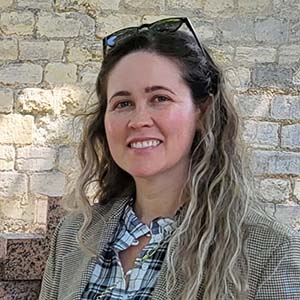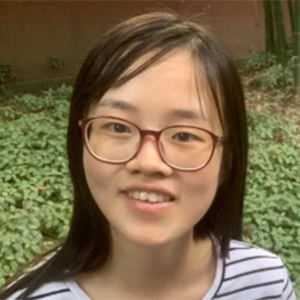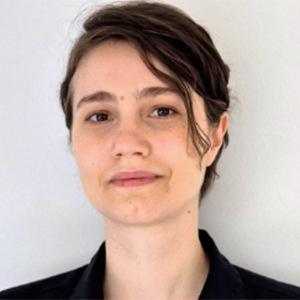Society Awards
The Society for Neuroeconomics offers several awards and Fellowships.
Early Career Award
The Society for NeuroEconomics invites applications for its annual Early Career Award. The successful applicants will demonstrate significant contributions to understanding the neural basis of decision making or the impact of this knowledge on formal understanding of decision behavior.
There will be two awards granted that each include a $1,000 monetary prize and an engraved plaque, which will be presented at the Annual Meeting of the Society each year.
Eligibility & Application Process
Eligibility
Eligible candidates are those who have defended their PhD a maximum of 10 years prior to the time they are considered (minus career breaks due to e.g. parental leave). Less senior researchers, including postdocs, are therefore also eligible. Candidates need to present evidence of engagement with the Society for Neuroeconomics (for example, membership, conference attendance, or committee work).
Nomination Process
Candidates can self-nominate or be nominated by a member of the Society.
In the second stage of the process (after May 19), nominees for the Award will be contacted and required to submit a pdf file consisting of:
- a one page description of their work and its relevance to the award criteria
- a current CV
- confirmation of time since PhD defence
- information of career breaks due to e.g. parental leave, which will be subtracted from the time since PhD defence
Extensions will be considered for nominees who have taken time away from research for reasons such as medical, disability, childbirth, family care, natural disasters, active duty military service, and non-research employment. Nomination materials should include information supporting the need for an extension which will be kept confidential (available to the Awards Committee and the President). The award committee will consider extension requests on a case-by-case basis as the nominations are evaluated. Prior approval for an extension is not necessary.
Selection Process
Applications will be reviewed by a committee appointed by the President of the Society. The committee will consist of 6-8 members who have been engaged with the Society for NeuroEconomics and who reflect the society’s diversity of academic disciplines (neuroscience, economics, psychology) and institutions. Members whose previous mentees or close collaborators applied cannot contribute to the final selection.
The committee will select the winner based on the following criteria:
- Is the research novel and creative?
- Does the research have the potential to change how we think about neuroeconomics?
- Is the research characterized by rigorous, innovative and interdisciplinary scientific methods?
- Does the research build upon existing neuroeconomics research in scholarly ways?
- Is the research influencing multiple fields within and outside of neuroeconomics?
Candidates can self-nominate or be nominated by a member of the Society.

2025 Winner
Nikki Sullivan
Assistant Professor, The London School of Economics and Political Science
Nicolette Sullivan is an Assistant Professor of Marketing at The London School of Economics and Political Science, where she leads research at the intersection of neuroscience, economics, and consumer behavior. Her work explores the temporal and attentional dynamics of decision-making, with a focus on how social context, context, and attribute processing influence choices in domains such as dietary, financial, and social choices. Dr. Sullivan’s research is distinguished by her use of process-tracing methods such as eye tracking and mouse tracking, as well as computational modeling, to uncover the mechanisms behind value-based decisions. Her findings, published in leading journals such as Nature Human Behaviour, Psychological Science, and the Journal of Marketing Research, have advanced both theoretical understanding and practical applications in behavioral science and policy design. Beyond her scholarly contributions, Dr. Sullivan has played a leadership role in the neuroeconomics community, serving as a board member and social chair for the Society for Neuroeconomics and co-organizing the annual conference’s Consumer Neuroscience Satellite Symposium. Her work embodies the field’s potential to generate insights that are both scientifically rigorous and socially impactful.

2025 Winner
Kiyohito Iigaya
Assistant Professor, Columbia University
Kiyohito (Kyo) Iigaya is an Assistant Professor in the Department of Psychiatry at Columbia University. He is also affiliated with the Center for Theoretical Neuroscience, the Mortimer B. Zuckerman Mind Brain Behavior Institute, the Data Science Institute at Columbia, and the New York State Psychiatric Institute. Kyo received his Ph.D. in Physics from Columbia University with Stefano Fusi and completed postdoctoral training at the Gatsby Computational Neuroscience Unit at University College London with Peter Dayan and Ray Dolan, and at Caltech with John O’Doherty. His research integrates computational modeling, neuroimaging, and cross-species approaches to investigate how the brain makes adaptive and maladaptive decisions, bridging neuroscience, behavioral economics, and psychiatry.
Previous Early Career Award Winners
2024 – Rahul Bhui, Patricia Lockwood
2023 – Rafael Polania, Candace M. Raio
2022 – Claire Gillan, Robb Rutledge
2021 – Amitai Shenhav, Cendri Hutcherson
2020 – Oriel Feldman Hall, Ryan Webb
2019 – Catherine Hartley, Gregory Samanez Larkin
2018 – Molly Crockett, Uma Karmarkar
2017 – Agnieszka Tymula, Ian Krajbich
2016 – Tali Sharot, PhD & Vinod Venkatraman, PhD
2015 – Hilke Plassmann, PhD & Ming Hsu, PhD
2014 – Joseph Kable, PhD
2013 – Tim Behrens, PhD & Daphna Shohamy, PhD
2012 – Nathaniel Daw, PhD
2011 – Camillo Padoa Schioppa, PhD
2010 – Todd Hare, PhD
2009 – Ben Hayden, PhD
Mid-Career Award
The Society for NeuroEconomics invites applications for its annual Mid-Career Award. The successful applicants will demonstrate significant and lasting contributions to understanding the neural basis of decision making or the impact of this knowledge on formal understanding of decision behavior.
There will be up to one award granted that includes a $1,000 monetary prize and an engraved plaque, which will be presented at the Annual Meeting of the Society each year.
Eligibility & Application Process
Eligibility
Eligible candidates are those who have defended their PhD between 10 and 20 years prior to the time they are considered (minus career breaks due to e.g. parental leave). If the applicant has already received the Society’s Early Career Award, then only the work published since the time of the receipt of that award will be evaluated. Candidates need to present evidence of engagement with the Society for Neuroeconomics (for example, membership, conference attendance, or committee work).
Nomination Process
Candidates can self-nominate or be nominated by a member of the Society.
In the second stage of the process (after May 19), nominees for the Award will be contacted and required to submit a pdf file consisting of:
- a one page description of their work and its relevance to the award criteria
- a current CV
- confirmation of time since PhD defence
- information of career breaks due to e.g. parental leave, which will be subtracted from the time since PhD defence
Extensions will be considered for nominees who have taken time away from research for reasons such as medical, disability, childbirth, family care, natural disasters, active duty military service, and non-research employment. Nomination materials should include information supporting the need for an extension which will be kept confidential (available to the Awards Committee and the President). The award committee will consider extension requests on a case-by-case basis as the nominations are evaluated. Prior approval for an extension is not necessary.
Selection Process
Applications will be reviewed by a committee appointed by the President of the Society. The committee will consist of 6-8 members who have been engaged with the Society for NeuroEconomics and who reflect the society’s diversity of academic disciplines (neuroscience, economics, psychology) and institutions. Members whose previous mentees or close collaborators applied cannot contribute to the final selection.
The committee will select the winner based on the following criteria:
- Is the research novel and creative?
- Does the research have the potential to change how we think about neuroeconomics?
- Is the research characterized by rigorous, innovative and interdisciplinary scientific methods?
- Does the research build upon existing neuroeconomics research in scholarly ways?
- Is the research influencing multiple fields within and outside of neuroeconomics?
Candidates can self-nominate or be nominated by a member of the Society.

2025 Winner
Christian Ruff
Professor, Univeristy of Zurich
Christian Ruff is Professor of Neuroeconomics and Decision Neuroscience at the University of Zurich, where he co-directs the Zurich Center for Neuroeconomics, the Laboratory for Social and Neural Systems Research, and the Marlene Porsche Graduate School in Neuroeconomics, the world’s only dedicated PhD program in this area. He studied psychology, cognitive science, and neurobiology in Freiburg and Vancouver before completing a PhD in Cognitive Neuroscience at University College London, where he remained as a senior research fellow until moving to Zurich in 2009.
Christian’s research explores the neurocomputational mechanisms that enable the human brain to select actions in the face of vast and uncertain information from both the environment and internal states. Integrating approaches from economics, psychology, machine learning, and neuroscience, he combines neuroimaging, computational modeling, and causal brain stimulation methods to uncover general principles of decision making across perceptual, value-based, and social domains. His work has shown how processes such as oscillatory evidence accumulation, attentional gain, and efficient coding shape choice behavior, and how risk attitudes emerge from fundamental perceptual inference mechanisms. A complementary research line, supported by an ERC Consolidator Grant, has identified neural circuits causally underpinning uniquely human social behaviors, including honesty, norm compliance, altruism, and moral decision making.
Christian has published more than 120 papers and has authored influential reviews that have shaped the agenda of decision neuroscience. In addition, he has advanced the field by building institutional structures and training programs, mentoring students from over 30 countries, and promoting interdisciplinary dialogue with clinicians, economists, and business leaders.
Previous Mid-Career Award Winners
2024 – Maël Lebreton
Best Dissertation Award
In order to acknowledge the exceptional work done by PhD students and to encourage excellence in the scholarship, research and writing in the field of neuroeconomics, SNE is pleased to invite submissions for its Best Dissertation Award. This award recognizes the best PhD thesis in neuroeconomics concluded in the year preceding the submission deadline of May 19, 2025.
The Award consists of a complimentary One-year Membership to the Society for Neuroeconomics (2025). You may also nominate up to two (2) other colleagues to receive a complimentary membership should you wish.
Applications will open April 2026
Eligibility, Application Process & Selection Process
Eligibility
To be considered, applicants must have successfully defended their dissertation in the year preceding the deadline (May 20, 2024 to May 19, 2025). Applicants cannot submit the same work for the Paper of the Year Award. Candidates need to present evidence of engagement with the Society for Neuroeconomics (for example, membership, conference attendance, or committee work).
Nomination Process
Candidates can self-nominate or be nominated by a member of the Society.
In the second stage of the process (after May 19), nominees for the Award will be contacted and required to submit a pdf file consisting of:
- Confirmation of thesis submission (either PhD diploma from an accredited institution, or a document from the PhD program confirming submission if still awaiting the degree)
- 1-page summary of the contributions made by the thesis to the field of neuroeconmics
- Full thesis and paper
- A published paper, a preprint or working paper from the thesis work
Selection Process
Applications will be reviewed by a committee appointed by the President of the Society. The committee will consist of 6-8 members who have been engaged with the Society for NeuroEconomics and who reflect the society’s diversity of academic disciplines (neuroscience, economics, psychology) and institutions. Members whose previous mentees or close collaborators applied cannot contribute to the final selection.
The committee will select the winning thesis based on the following criteria:
- Is the research novel and creative?
- Does the research have the potential to change how we think about neuroeconomics?
- Is the research characterized by rigorous, innovative and interdisciplinary scientific methods?
- Does the research build upon existing neuroeconomics research in scholarly ways?
- Is the research influencing multiple fields within and outside of neuroeconomics?
The review committee will shortlist and select candidates based on the 1-page summary.

2025 Winner
Haoxue Fan
Brown University
“Cognitive Mechanisms Underlying Exploration and Information Seeking Under Uncertainty“
Previous Dissertation Award Winners
2024:
Pei Yuan Zhang
“The Dynamic Nature of Procrastination”
2023:
Joseph Heffner
“Emotion prediction errors guide socially adaptive behaviour.”
2022:
Weikang Shi
“Causal Function and Bias Correlation of the Orbitofrontal Cortex in Economic Choices. “
2021:
Dr. Vered Kurtz-David, Tel Aviv University
“Investigation of Economic Inconsistency and Behavior, and their Neural Mechanisms”
Paper of the Year Award
In order to acknowledge the exceptional work done in the field of neuroeconomics, SNE is pleased to invite submissions for its Paper of the Year Award. Up to two (2) awards will be provided based on the submissions received.
The Award consists of a complimentary One-year Membership to the Society for Neuroeconomics (2025). You may also nominate up to two (2) other colleagues to receive a complimentary membership should you wish.
Applications will open April 2026
Eligibility, Application Process & Selection Process
Eligibility
Members of the Society for Neuroeconomics who are in good standing can nominate papers (including their own) that have been published in the year preceding the deadline (May 20, 2024 to May 19, 2025). Papers must be original research published in peer-reviewed journals. Reviews and meta-analyses are not eligible for the award. Applicants cannot submit the same work for the Best Dissertation Award. Candidates need to present evidence of engagement with the Society for Neuroeconomics (for example, membership, conference attendance, or committee work).
Nomination Process
Candidates can self-nominate or be nominated by a member of the Society.
In the second stage of the process (after May 19), nominees for the Award will be contacted and required to submit:
- Link to the paper
- 500-word statement explaining why the paper deserves the award
Selection Process
- Applications will be reviewed by a committee appointed by the President of the Society. The committee will consist of 6-8 members who have been engaged with the Society for NeuroEconomics and who reflect the society’s diversity of academic disciplines (neuroscience, economics, psychology) and institutions. Members whose previous mentees or close collaborators applied cannot contribute to the final selection.
- The committee will shortlist up to 10 papers based on the submitted statements.
- Shortlisted papers are read by the committee and the winner is picked

2025 Winner
Miruna Cotet
Complexity Science Hub
“Deliberation during online bargaining reveals strategic information“
Previous Winners
2024:
Rémi Janet
“Body mass index–dependent shifts along large-scale gradients in human cortical organization explain dietary regulatory success.” Rémi Janet et al (2024). https://www.pnas.org/doi/10.1073/pnas.2314224121
2023:
Romain Durand-de Cuttoli
“Distinct forms of regret linked to resilience versus susceptibility to stress are regulated by region-specific CREB function in mice.”
Durand-de Cuttoli, R., Martínez-Rivera, F. J., Li, L., Minier-Toribio, A., Holt, L. M., Cathomas, F., Yasmin, F., Elhassa, E.O., Shaikh, J.F., Ahmed, S., Russo, S.J., Nestler, E.J., & Sweis, B. M. (2022). Science Advances, 8(42). DOI: 10.1126/sciadv.add5579
Yaomin Jiang
“Neurocomputational mechanism of real-time distributed learning on social networks”. Jiang, Y., Mi, Q., & Zhu, L. (2023). Nature Neuroscience, 26(3), 506-516. https://doi.org/10.1038/s41593-023-01258-y
2022:
Tanja Müller
“Neural and computational mechanisms of momentary fatigue and persistence in effort-based choice. Nature Communications.” Müller, T., Klein-Flügge, M. C., Manohar, S. G., Husain, M. & Apps, M. A. J. (2021) Nature Communications. 12, 4593https://www.nature.com/articles/s41467-021-24927-7
Arthur Prat-Carrabin
“Efficient coding of numbers explains decision bias and noise.” *Prat-Carrabin, A., & Woodford, M. (2022). Nature Human Behaviour, 845–848.https://www.nature.com/articles/s41562-022-01352-4
2021:
Abhishek (Abhi) Banerjee, Newcastle University
“Value-guided remapping of sensory cortex by lateral orbitofrontal cortex.“
Banerjee A*, Parente G, Teutsch J, Lewis C, Voigt FF and Helmchen F (2020) Value-guided remapping of sensory cortex by lateral orbitofrontal cortex. Nature 585:245-250.
https://www.nature.com/articles/s41586-020-2704-z
Best Talk and Best Poster Award
For Poster & Talk Presenters
Bring your best work because all presenters will automatically be reviewed for a Best Talk and Best Poster Award. A judging committee will review all presenters on their work and their presentation execution. The winner of each will earn $100 and will be featured in post conference communication and on the website.
2025 Winners
Best Talk Award Winners
Best Talk Presenters
2024 –
Jonathan Nicholas, New York University
“Episodic memory is used to flexibly access features of past experience for decision making”
2023 –
Ethan Bromberg-Martin, Washington University School of Medicine in St. Louis
“Integrating information and reward into subjective value: humans, monkeys, and the lateral habenula”
Ethan Bromberg-Martin, Yang-Yang Feng, Takaya Ogasawara, J. Kael White, Kaining Zhang, Ilya Monosov
2022 –
Jo Cutler, University of Birmingham
“Damage to ventromedial prefrontal cortex decreases effortful prosocial behaviours”
Jo Cutler, Matthew Apps, Daniel Drew, Deva Jeyaretna, Masud Husain, Sanjay Manohar, Patricia Lockwood
Kiyohito Iigaya, Columbia University
“Neural computation underlying aesthetic experience”
Kiyohito Iigaya, Sanghyun Yi, Iman Wahle, Koranis Tanwisuth, John O’Doherty
2021 –
Gold: Rafael Polania, University of Zurich
“Neural codes in early sensory areas maximize fitness”
Jonathan Schaffner, Philippe Tobler, Todd Hare
Silver: Haoxue Fan, Harvard University
“Trait somatic anxiety is associated with reduced exploration and underestimation of relative uncertainty”
Samuel Gershman, Elizabeth Phelps
Bronze: Valentin Wyart, Ecole Normale Superieure
“Imprecise learning drives variable but adaptive decisions under uncertainty in humans and artificial neural networks”
2020 – Zhihao Zhang, University of California, Berkeley
“Retrieval-Constrained Valuation: Toward Prediction of Open-Ended Decisions”
Shichun Wang, Maxwell Good, Siyana Hristova, Andrew Kayser, Ming Hsu
2019 – Brian Sweis, University of Minnesota
“Translational neuroeconomics in addiction: Species-specific similarities and differences in dysfunction between wanting vs liking among humans and mice.”
Jazmin Camchong, Samantha Abram, Sheila Specker, Kelvin Lim, Angus MacDonald, Mark Thomas, David Redish
2018 – Sudeep Bhatia, University of Pennsylvania
“The space of decision models”
Lisheng He, Wenjia Joyce Zhao
2017 – Wouter Kool, Harvard University
“Neural and behavioral signatures of metacontrol in reinforcement learning”
Wouter Kool, Samuel Gershman, Fiery Cushman
2016 -: Daniel Kimmel, Columbia University
“Encoding of value and choice as separable, dynamic neural dimensions in orbitofrontal cortex”
Daniel Kimmel, Gamaleldin Elsayed, John Cunningham, William Newsome
2015 – Tobias Kalenscher, Universität Düsseldorf, Germany
“Basolateral amygdala lesions abolish mutual reward preference in rats“
Tobias Kalenscher, Marijn van Wingerden, Sandra Schäble, Julen Hernandez-Lallement
2014 – Molly Crockett, University of Oxford, England
“How Serotonin and Dopamine Shape Moral Decision Making”
Crockett MJ, Siegel , Kurth- Nelson Z, Ousdal OT, Story GW, Dayan P, Dolan RJ
2013 – Ritwik K Niyogi, Gatsby Computational Neuroscience Unit, UCL
“Some work and some play: a normative, microscopic approach to allocating time between work and leisure”
Ritwik K. Niyogi, Yannick-Andre Breton, Rebecca B. Solomon, Kent Conover, Peter Shizgal, Peter Dayan
Joe Kable, University of Pennsylvania
“From valuation to action: choice prediction in vmPFC and beyond”
2012 – Tali Sharot, UCL
“Why Humans Discount Bad News: Findings from development, pharmacology and TMS”
Best Poster Award Winners
Best Poster Presenters
2024 –
Camilla van Geen, University of Pennsylvania
“Age-dependent changes in hippocampal contributions to decision-making“
2023 –
Aniek Fransen, California Institute of Technology
“Neural representations of attribute-based valuation across contexts.”
Aniek Fransen, Kiyohito Iigaya, John O’Doherty
2022 –
Laura Globig, University College London
“Changing the Incentive Structure of Social Media Platforms to Halt the Spread of Misinformation”
Laura Globig, Nora Holtz, Tali Sharot
2021 –
Gold: Micah Edelson, University of Zurich
“Goal-dependent recalibration of hippocampal representations facilitates self-control”
Micah Edelson, Todd Hare
Silver: Nitisha Desai, Ohio State University
“Investigating the link between neural reward reactivity and attention”
Nitisha Desai, Allison Londerée, Eunbin Kim, Dylan Wagner, Ian Krajbich, Kentaro Fujita
Bronze: Marie Falkenstein, Sorbonne University
“Does COVID-related stress affect self-control and the ability to make healthy food choices”
Marie Falkenstein, Felix Nitsch, Leonie Koban, Aiqing Ling, Tobias Kalenscher, Hilke Plassmann
2020 Alexandre Filipowicz, University of Pennsylvania
“Using mobile eye-tracking to capture the effects of choice set size on information processing during purchase decisions in the field”
Alexandre Filipowicz, Laura Zaneski; M. Kathleen Caulfield; Quentin Andre; Eric Singler; Hilke Plassmann; Joseph Kable
2019: Jaime Castrellon, Duke University
“Individual differences in dopamine predict self-control of everyday desires”
Jaime Castrellon, David Zald, Gregory Samanez Larkin
2018: Jaime Castrellon, Duke University
“Parsing the role of dopamine in reward discounting and subjective valuation”
Jaime Castrellon, Gregory Samanez-Larkin
2017: Jan Zimmermann, New York University
“Adapting choice behavior and neural value coding in monkey orbitofrontal cortex”
Jan Zimmermann, Paul Glimcher, Kenway Louie
2016: Alireza Soltani, Dartmouth College
“Contributions of neural adaptation to value-based and perceptual choice”
Oihane Horno, Mehran Spitmaan, Alireza Soltani
2015: Alaa Ahmed, University of Colorado Boulder
“Effort, reward, and vigor in decision-making and motor control”
Authors: Reza Shadmehr, Helen Huang, Alaa Ahmed
2014: Cendri Hutcherson, California Institute of Technology
“Ethics or empathy? Different appraisals activate distinct social cognitive brain regions during altruistic choice”
Authors: Cendri Hutcherson & Antonio Rangel
2013: Raphaëlle Abitbol, Pantheon-Sorbonne University
“Pre-stimulus brain activity predicts subjective valuation in monkeys and humans? “
Authors: R. Abitbol, M. Lebreton, G. Hollard, B. J. Richmond, S. Bouret, M. Pessiglione
2012: Ian Krajbich, The Ohio State University
“Thinking fast and slow ? The reverse-inference problem with reaction times?”
Authors: I. Krajbich, B. Bartling, T. Hare, E. Fehr
2011: Hilke Plassmann, INSEAD and Cognitive Neuroscience Unit INSERM & Ecole Normale Superieure & University of Toronto
“Is there a common “cost” currency system? Neural correlates of abstract and somatosensory costs during value integration”
Authors: Hilke Plassmann & Nina Mazar
2010: Jeffrey Cockburn, Cognitive, Linguistic and Psychological Sciences, Brown University
“Why (and how much) do we value the freedom to choose? Decision enhances spatial credit assignment in reinforcement learning “
Authors: Jeffrey Cockburn and Michael J. Frank
Travel Awards
Award Information
The number of awards and amount of support will be determined by the funding secured.
Applications are currently closed
Eligibility & How To Submit
Eligibility
To be considered, applicants
- Must be enrolled in an undergraduate or graduate program, or be engaged in postdoctoral studies,
- Be a student or post doc member of SNE in good standing,
- Submit an abstract in the first call for abstract round. Late submission abstracts will not be considered.
How to Submit
Applications are accepted via the abstract submission process. As you submit an abstract, you will be asked if you want to be considered for a Travel Award. If so, you will be required to upload a one-page PDF document explaining how attending the meeting will be valuable to your professional development and listing the other sources of conference support available to you.
